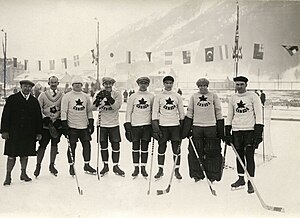The men's ice hockey tournament at the 1948 Winter Olympics in St. Moritz, Switzerland, was the sixth Olympic Championship, also served as the 15th World Championships and the 26th European Championships. Canada won its fifth Olympic gold medal and 12th World Championship, represented by the Ottawa RCAF Flyers team of Canadian Armed Forces personnel. The highest-finishing European team Czechoslovakia, won the silver medal and its eighth European Championship. Bibi Torriani played for Switzerland which won the bronze medal, and became the first ice hockey player to recite the Olympic Oath on behalf of all athletes.

The men's ice hockey tournament at the 1928 Winter Olympics in St. Moritz, Switzerland, was the third Olympic Championship, also serving as the third World Championships and the 13th European Championships. Canada, represented by the University of Toronto Graduates, won its third consecutive gold medal. Highest finishing European team Sweden won the silver medal and its third European Championship.

The men's ice hockey tournament at the 1936 Winter Olympics in Garmisch-Partenkirchen, Germany, was the fifth Olympic Championship, also serving as the tenth World Championships and the 21st European Championships.
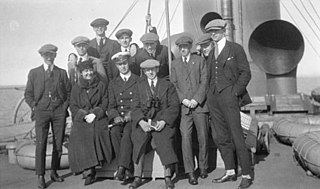
Ice hockey was introduced to the Olympic Games at the 1920 Summer Olympics in Antwerp. The tournament also served as the first World Championships. The matches were played between April 23 and April 29, 1920. Canada, represented by the Winnipeg Falcons, won the gold medal. The silver went to the United States and Czechoslovakia took the bronze.
The Toronto Granites were an amateur senior ice hockey team from Toronto, Ontario. The Granites were Allan Cup champions in 1922 and 1923. They were chosen to represent Canada at the 1924 Winter Olympics in Chamonix, France. The Granites won the second consecutive Olympic gold medal for the Canada national men's ice hockey team.

Ice hockey tournaments have been staged at the Olympic Games since 1920. The men's tournament was introduced at the 1920 Summer Olympics and was transferred permanently to the Winter Olympic Games program in 1924, in France. The women's tournament was first held at the 1998 Winter Olympics.

Canada competed at the 1920 Summer Olympics in Antwerp, Belgium. 52 competitors, all men, took part in 38 events in 9 sports. These games marked the introduction of winter sports to the Olympic program ; Canada won its first gold medal for ice hockey.
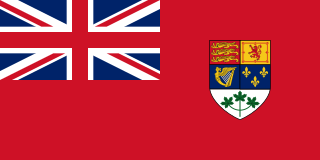
Canada competed at the 1924 Winter Olympics in Chamonix, France. They won one gold medal, in ice hockey.
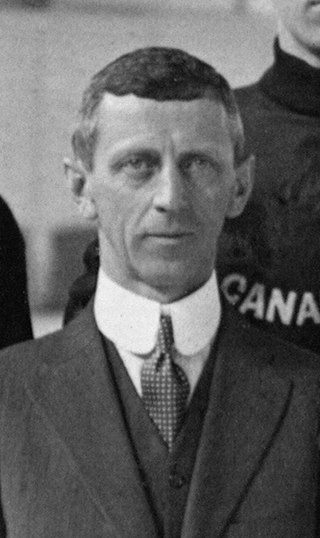
William Abraham Hewitt was a Canadian sports executive and journalist, also widely known as Billy Hewitt. He was secretary of the Ontario Hockey Association (OHA) from 1903 to 1966, and sports editor of the Toronto Daily Star from 1900 to 1931. He promoted the establishment of the Canadian Amateur Hockey Association (CAHA), then served as its secretary-treasurer from 1915 to 1919, registrar from 1921 to 1925, registrar-treasurer from 1925 to 1961, and a trustee of the Allan Cup and Memorial Cup. Hewitt standardized player registrations in Canada, was a committee member to discuss professional-amateur agreements with the National Hockey League, and negotiated working agreements with amateur hockey governing bodies in the United States. He oversaw referees within the OHA, and negotiated common rules of play for amateur and professional leagues as chairman of the CAHA rules committee. After retiring from journalism, he was the managing-director of Maple Leaf Gardens from 1931 to 1948, and chairman of the committee to select the inaugural members of the Hockey Hall of Fame in 1945.

George Samuel Dudley was a Canadian ice hockey administrator. He joined the Ontario Hockey Association (OHA) executive in 1928, served as its president from 1934 to 1936, and as its treasurer from 1936 to 1960. He was elected to Canadian Amateur Hockey Association (CAHA) executive in 1936, served as its president from 1940 to 1942, as its secretary from 1945 to 1947, and as its secretary-manager from 1947 to 1960. He was secretary of the International Ice Hockey Association from 1945 to 1947, and was later vice-president of the International Ice Hockey Federation (IIHF) from 1957 to 1960. He was expected to become the next president of the IIHF before his death. He graduated from Osgoode Hall Law School in 1917 then practiced law for 43 years as the town solicitor for Midland, Ontario.
The Winnipeg Falcons were a senior men's amateur ice hockey team based in Winnipeg, Manitoba. The Winnipeg Falcons won the 1920 Allan Cup. That team went on to represent Canada in the 1920 Olympic games held in Antwerp, Belgium. There the Falcons, soundly beating all their opponents, won for Canada the first Olympic gold medal in ice hockey.

Paul Loicq was a Belgian lawyer, businessman and ice hockey player, coach, referee and administrator. He played ice hockey for Belgium men's national ice hockey team and won four bronze medals from in 1910 to 1914. He was a leading supporter of the efforts to introduce ice hockey at the Olympic Games, and served on the organizing committee for ice hockey at the 1920 Summer Olympics. After playing in the 1920 Olympics he served as president of the Royal Belgian Ice Hockey Federation from 1920 to 1935, and as president of the Ligue Internationale de Hockey sur Glace (LIHG) from 1922 to 1947, which was later known as the International Ice Hockey Federation (IIHF). During his time as president the LIHG more than doubled its membership and welcomed the first national associations from Asia and Africa, and the LIHG began hosting its annual Ice Hockey World Championships in 1930. He was also an international ice hockey referee from 1924 to 1937 at the Olympic Games, the Ice Hockey World Championships and the Ice Hockey European Championships. He served in the Belgian Army during World War I and World War II, achieved the rank of colonel, and represented Belgium as legal counsel at the Nuremberg trials.
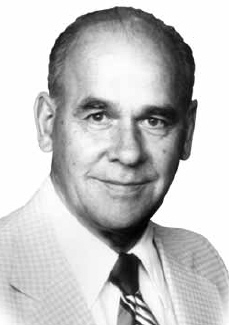
Frederick Page was a Canadian ice hockey administrator and ice hockey referee. He originated from Port Arthur, Ontario, where he played junior ice hockey, refereed locally and later at the Memorial Cup and Allan Cup competitions. He was a league executive in Fort William, then served as president of the Thunder Bay Amateur Hockey Association from 1958 to 1962. He was elected second vice president of the Canadian Amateur Hockey Association (CAHA) in 1962, and rose up the ranks to be its president from 1966 to 1968. Page wanted the CAHA to gain more control over its affairs, and become less dependent on the National Hockey League (NHL). Under his leadership, the NHL ended direct sponsorship of junior hockey teams. He was instrumental in negotiating the revised agreement for the NHL Amateur Draft in 1967, and later served as co-chairman of the resulting joint player development committee.
The 1947 Ice Hockey World Championships were the 14th World Championships and 25th European Championship was the first after the Second World War. It was held from 15 to 23 February 1947 at Štvanice Stadium in Prague, Czechoslovakia. Eight teams participated, but the competition was notably missing the reigning world champion, Canada. The world champion was decided for the first time by round robin league play. Czechoslovakia won the world championship for the first time and the European championship for the seventh time. King Gustav V had sent a telegram of congratulations to the Swedish team after beating the Czechoslovaks, but they had barely finished celebrating when they were upset by the Austrians, costing them the gold medal.
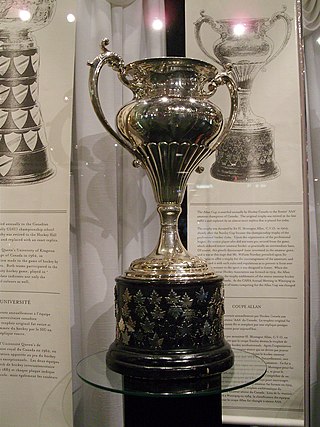
The 1935 Allan Cup was the senior ice hockey championship of the Canadian Amateur Hockey Association (CAHA) for the 1934–35 season. In the best-of-three final, the Halifax Wolverines defeated the Port Arthur Bearcats two games to none.
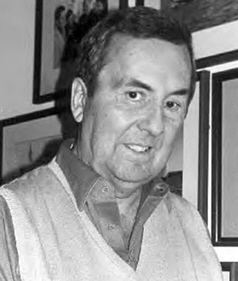
Gordon Ralph Renwick was a Canadian ice hockey administrator, who served as president of the Canadian Amateur Hockey Association (CAHA), vice-president of the International Ice Hockey Federation (IIHF), and was the team president of the Galt Hornets.
Bob Nadin is a Canadian retired ice hockey referee and administrator. He refereed at the 1972 Winter Olympics, and served as a referee supervisor for the International Ice Hockey Federation (IIHF), the National Hockey League, and the Canadian Amateur Hockey Association. He was involved with the Winter Olympic Games every Olympiad from 1972 until 2012, and was honoured by the International Olympic Committee with the Pierre de Coubertin Medal. The IIHF honoured Nadin with the Paul Loicq Award, and inducted him into the IIHF Hall of Fame.

William Alexander Fry was a Canadian sports administrator and newspaper publisher. Fry founded the Dunnville Chronicle in 1896, managed local hockey and baseball teams in the 1910s, then served as president of the Ontario Hockey Association (OHA) from 1922 to 1924. At the national level, he was president of the Canadian Amateur Hockey Association (CAHA) from 1928 to 1930, was a Canadian Olympic Committee member and British Empire Games committee member from 1927 to 1938, and served as president of the Amateur Athletic Union of Canada from 1934 to 1936.

John Franklin Paxton was a Canadian ice hockey administrator. He served as president of the Ontario Hockey Association (OHA), and was the acting president of the Canadian Amateur Hockey Association during World War I. He ensured that competition for the Allan Cup continued, which saw increased participation from military teams playing senior ice hockey in Canada. He partnered with W. A. Hewitt to negotiate a relationship with the International Skating Union of America to resume hockey games between Canada and the United States that had ended due to the war. Paxton later served as treasurer of the OHA, was a regular delegate to the general meetings of the Amateur Athletic Union of Canada, and represented the old guard of strict principles of amateurism where hockey players did not accept money. He served as the sheriff of Ontario County from 1887 until 1932, and was the son of politician and industrialist Thomas Paxton. After Paxton's death, the Winnipeg Free Press referred to him as both "Canada's most beloved hockey official", and "hockey's most beloved figure".

Frederick Paul Henry Marples was a Canadian sports executive in ice hockey and athletics. He was president of the Winnipeg Monarchs team which won Winnipeg Amateur Hockey League championships in 1914 and 1915, and the Allan Cup as senior ice hockey champions of Canada. His operation of a reserve team to support the Monarchs led to debates on player eligibility for the Allan Cup and calls for a national governing body of hockey. As the secretary-treasurer of the Winnipeg Amateur Hockey League, he helped establish both the Manitoba Amateur Hockey Association (MAHA) and the Canadian Amateur Hockey Association (CAHA) in 1914; then served as secretary-treasurer of the MAHA from 1914 to until 1934, and as secretary of the CAHA from 1926 to 1945. He sought to grow the game in rural regions of Manitoba, promote minor ice hockey as a source of future senior players, to keep players in junior ice hockey until age 21, and was against the exodus of amateur players to professional teams.
